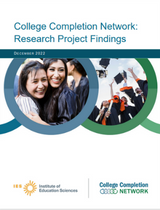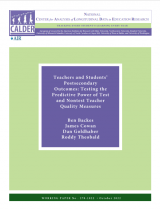Infographic: Do Degree Completers Who Transfer or Stop Out Earn Less Than Those Who Don’t?
This infographic, based on study conducted by AIR, used a comparative analysis of earnings outcomes for degree completers who transferred, stopped out, or did neither— whom we refer to as “traditional”—on the way to their degree. This infographic focuses on the cohort of completers who earned their degree in 2015, presenting their average quarterly wages 1, 3, and 5 years after degree completion.










